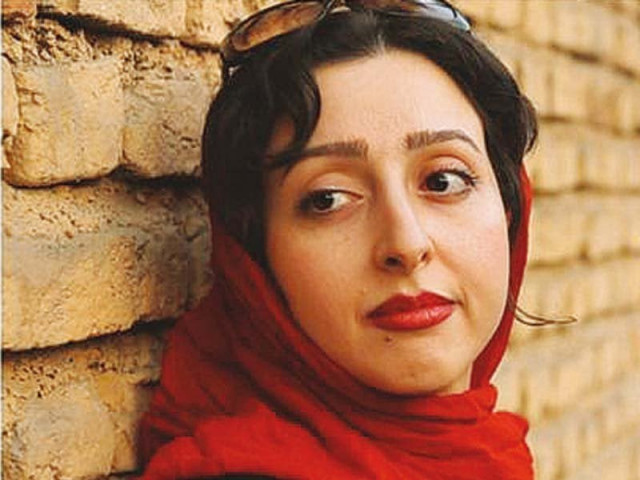Film review: No Land’s Song - A lyrical war
No Land’s Song documents the emotional journey of a group of Iranian women struggling to sing solo in public

No Land’s Song documents the emotional journey of a group of Iranian women struggling to sing solo in public.
Not only did space for women begin to shrink but their voices were also clamped down (quite literally) when the regime banned female singers from singing solo in public — unless the audience comprised of only women. However, 35 years later, composer Sara Najafi and her group of female singer friends decided to reclaim public space for the female voice by organising a concert in Tehran. Their journey is beautifully documented by film-maker and Sara’s brother Ayat Najafi in No Land’s Song, which premiered at the Human Rights Watch Film Festival in New York this month.

The film opens with a vibrant and wide-eyed Sara convincing her female friends and artists to recreate the glory days of iconic Iranian female singers, such as Qamar al-Moluk Vaziri, Delkash and Googoosh who took the stage and blew the audience away with their magical notes. As the idea begins to pick up momentum, Sara also invites French and Tunisian artists to participate in the concert in an attempt to show and share the richness of her culture with people from different parts of the world.
The film follows Sara as she scuttles between securing permission for the concert from the Iranian Ministry of Culture, convincing foreign singers to come and perform despite obvious obstacles, procuring visas, making travel arrangements, organising rehearsals and revisiting old sites and tales that help the viewer understand the rich Persian culture that Sara is trying to revive through this simple act.
While Sara’s love for her culture and music is contagious and gets you rooting for her from the moment she takes the screen, the film is a grave reminder that we still live in a world where women have to go to great lengths for something as simple as wanting to sing alone in public. These points are driven home in a few powerful scenes such as the one where a religious scholar cites the tendency of men to get aroused and be led astray by a female voice as valid grounds for banning women from singing in public. In another scene, an official from the cultural ministry advices Sara to include a few male singers in her line-up to ‘drown’ out the female voices in order to increase the chances of obtaining a permit for the concert.
Even though the film covers several years of struggle by Sara and fellow artists, it does not become monotonous or repetitive at any point. In fact, the concert is used very skillfully to explain the larger struggle against archaic beliefs and power structures that the people of Iran are up against on a daily basis. It also shows the audience that Iran is ready for a change — even if it comes through the simplest of acts such as wanting to hear the sound of your own voice in front of a large audience.

Published in The Express Tribune, Sunday Magazine, June 21st, 2015.



















COMMENTS
Comments are moderated and generally will be posted if they are on-topic and not abusive.
For more information, please see our Comments FAQ